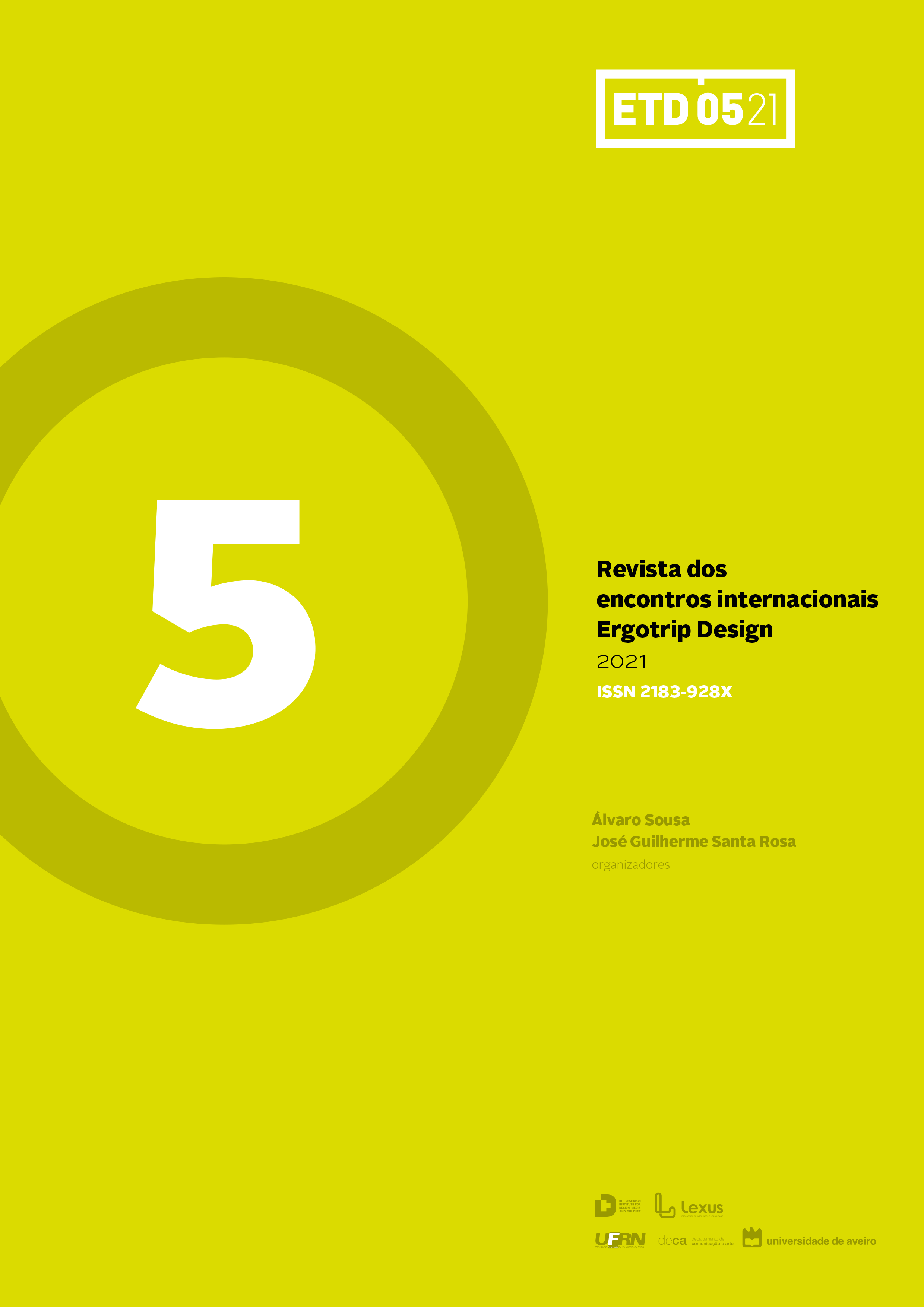Design na Universidade de Aveiro: Desenhar é Pensar
Resumo
Identificamos como natureza do pensamento em design, a predisposição crítica e criativa do designer para o questionamento constante, motivada pela sua inquietação e curiosidade que, descobre através do desenho, soluções para problemas pré-existentes, mas também o novo assim inventando o futuro e validando a prática projetual, como laboratório de inovação (produção de conhecimento). Este contributo, propõe a demonstração do desenho como manifestação de pensamento e instrumento de linguagem do Design. Partindo da verificação da importância do desenho na estrutura curricular da Licenciatura em Design da Universidade de Aveiro, reforçamos este posicionamento convocando autores com reflexão sobre a temática e com responsabilidade na formação de estudantes, designers e arquitetos cuja prática de desenho é raiz de pensamento e manifestação de autoria e, eventos que revelam o desenho ao público em geral, ou que convidam o público a desenhar, imaginar, pensar.
Referências
AFONSO, S. (2019). Sobre a Porto Design Biennal. Retrieved October 26, 2020, from Porto Design Biennal 2019 - Post Millennium Tension website: https://portodesignbiennale.pt/pt/about
ARCHER, B. (1979). Whatever became of Design Methodology? Design Studies, 1(1), 17–20.
BRANCO, V., & PROVIDÊNCIA, F. (2017). Design as Cultural Mediation between Matter and What Matters. The Design Journal, (December 2017), 1–9. https://doi.org/10.1080/14606925.2018.1396025
BRÍZIO, F. (2011). Prefácio. In P. Cabau (Ed.), Design pelo desenho: exercícios, jogos, problemas e simulações (p. 240). Lisboa: FCA Design.
CENTRO PORTUGUÊS DE DESIGN. (n.d.). Do Desenho ao Design. Lisboa: Centro Português de Design.
COLOMER, J. (2018). Cuidad Parade. Retrieved November 9, 2020, from Big Draw Barcelona Dibuja website: https://www.barcelona.cat/barcelonadibuixa/edicio2018/es/index.html
CÔRTE-REAL, E. (2009). The smooth guide to Travel Drawing. Lisboa: Livros Horizonte.
CROSS, N. (2001). Designerly ways of knowing: design discipline versus design science. Design Issues, 17(3), 49–55. https://doi.org/10.1162/074793601750357196
CRUZ, M. T. (2015). O Design como Pensamento. In R. Cunca & V. M. Almeida (Eds.), Documentar Comentar o Design (pp. 80–91). Lisboa: CIEBA.
DILNOT, C. (2009). Why do we draw. In E. Côrte-Real (Ed.), The smooth guide to Travel Drawing (pp. 24–39). Lisboa: Livros Horizonte.
FLUSSER, V. (2010). Uma Filosofia do Design: a forma das coisas. Lisboa: Relógio d’Água Editores.
GLASER, M. (2009). Drawing Is Thinking. London: Gerald Duckworth & Co Ltd.
PROVIDÊNCIA, F. (1998). Desenho, Desejo, Desígnio. Anuário Do Centro Português de Design 98, p. 134. Lisboa: Centro Português de Design.
PROVIDÊNCIA, F. (2003). Algo más que una hélice. In A. Calvera (Ed.), ARTE ¿? DISEÑO, nuevos capitulos en una polémica que viene de lejos (pp. 195–213). Barcelona: Editorial Gustavo Gili.
PROVIDÊNCIA, F. (2012). Genitálias: desenhos de Conceição Abreu. Porto: Faculdade de Belas Artes da Universidade do Porto.
PROVIDÊNCIA, F. (2016). Aula Aberta de Desenho na Faculdade de Arquitetura da Universidade do Porto em 10 de outubro de 2016. Porto: Não Publicado.
PROVIDÊNCIA, F. (2018). An Imagined Being: The Stereotyped Influence of Places. In D. Raposo (Ed.), Communicating Visually: the graphic design of the brand (pp. 42–68). Newcastle upon Tyne: Cambridge Scholars Publishing.
PROVIDÊNCIA, F., CASELLA, G., & BELÉM, M. C. (2017). Desejo, Desígnio e Desenho: Francisco de Holanda 1517-2017. Lisboa: Museu do Dinheiro.
SIMON, H. A. (1996). The Sciences of the Artificial (3rd ed.). https://doi.org/10.2307/3102825
SIZA, Á. (2019). A importância de desenhar. In C. C. Morais (Ed.), 01 Textos (p. 288). Lisboa: Parceria A. M. Pereira.
UNIVERSIDADE DE AVEIRO. (2020). Plano Curricular da Licenciatura em Design. Retrieved October 28, 2020, from Universidade de Aveiro website: https://www.ua.pt/pt/c/20/p
Direitos de Autor (c) 2021 Revista dos encontros internacionais Ergotrip Design

Este trabalho está licenciado com uma Licença Creative Commons - Atribuição 4.0 Internacional.





